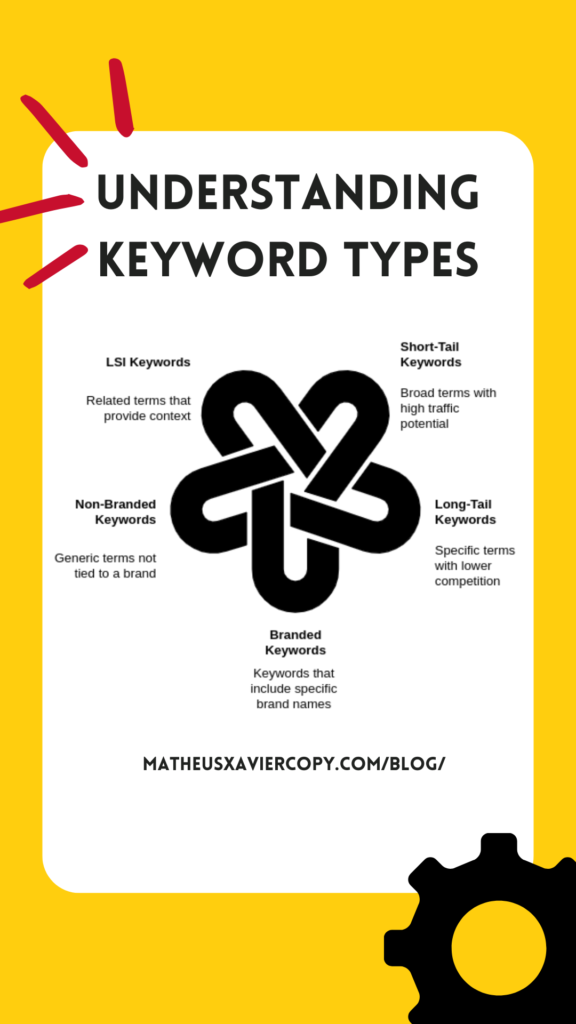SEO is crucial to gaining more visitors to your website, but to achieve this goal you need to optimize the key elements. In this blog post, I will show you the key elements of On-page SEO and why they are important.
SEO: What are the key elements?
SEO: What are the key elements and why are they important?
SEO or Search Engine Optimization has basically three key elements that need to be in your article, and they are keywords, content, and HTML Tags.

As we discussed in another blog post, SEO is a set of strategies that have one goal in mind: To make more potential customers see you writing content. However, to make this goal come true, we need to optimize these three key elements.
Each of them has a crucial role in SEO and in this content, I’ll explain everything to you in the most practical way.
SEO: Why keyword is important?
The keyword is the phrase that summarizes what the content is about, but at the same time is the phrase the potential visitors type on Google, Bing, or DuckDuckGo.
These search engines use keywords to filter all the content on the internet that the person is searching for and rank the best options for the user.
In simple terms, the keyword is important because is crucial to your content being found on the internet. Without a good keyword, your article can’t be found, so all the work you put into creating the content sadly becomes pointless.
That’s why content marketing is not just about creating a fine piece of content itself, but has to be optimized by a professional. Did you enjoy the content so far? Follow me on Threads for more.

SEO: Why content is important?
We can say that the content is the heart, and soul of your content marketing strategy because if your content is not engaging, the person who finds will not convert into a client or a constant viewer of your content.
Think of the content as a movie, and the keyword is the marketing for that movie. If the marketing is good enough to make the audience buy a ticket (Click on your blog post’s link), but the movie (Content) is not good, the audience never comes back.
I said above that the content has to be engaging, but engaging can’t be a lot of things, right? So let’s define exactly what engaging content is:
- Content that engages helps the audience in some way, maybe with a practical guide.
- Engaging content is fun to read or relevant, so your audience sees value in it.
- Content that engages makes the audience read entirely and want more.
However, is not just that makes engaging content important. The main reason why content is important is because leads to shares, and backlinks, so more people will see it. Backlinks are about off-page SEO, and I cover this in my guide for beginners. Click here to read it.
SEO: Why HTML tags are important?
HTML tags are the most technical aspect of your writing content. HTML tags are titles, descriptions, and headings of your article.
Think that way, search engines are more advanced now, but they still have their own language, so to make them show our content to more people, we need to speak in their mother tongue.
HTML tags are important because make the search engines understand the relevance of your content to the user, based on the HTML tags they can understand the following quests:
- How deep your content is, and how many topics do you cover in your blog post?
- How much experience do you have to write about that subject?
- How many previous articles do you post on your website about the same topic?
These three questions are important to define the ranking on Google, Bing, DuckDuckGo or so many other search engines.
Of course, I’m here now to explain in simple terms to you, so I will not deep dive into the complexity of the ranking of Google. Those questions I came up with based on Google’s concept: E-E-A-T. Maybe in another opportunity, I can make an advanced guide about this concept.



























![How to make a headline? [Learn Copywriting in 3 steps]](https://matheusxaviercopy.com/wp-content/uploads/2024/11/Picsart_24-11-08_23-10-34-695-scaled.jpg)
![What is off-page SEO for website? [Understand in 1 minute]](https://matheusxaviercopy.com/wp-content/uploads/2024/11/Picsart_24-11-05_09-49-51-640-scaled.jpg)
![Content and SEO: Why do technology companies need it? [2024]](https://matheusxaviercopy.com/wp-content/uploads/2024/10/Picsart_24-10-15_17-25-02-236-scaled.jpg)


![SEO: What are the key elements? [Understand in 30 seconds]](https://matheusxaviercopy.com/wp-content/uploads/2024/10/Picsart_24-10-09_11-57-22-785-scaled.jpg)
![SEO: What is it in simple terms? [Understand in 30 seconds]](https://matheusxaviercopy.com/wp-content/uploads/2024/09/Picsart_24-09-10_11-16-03-082-scaled.jpg)


